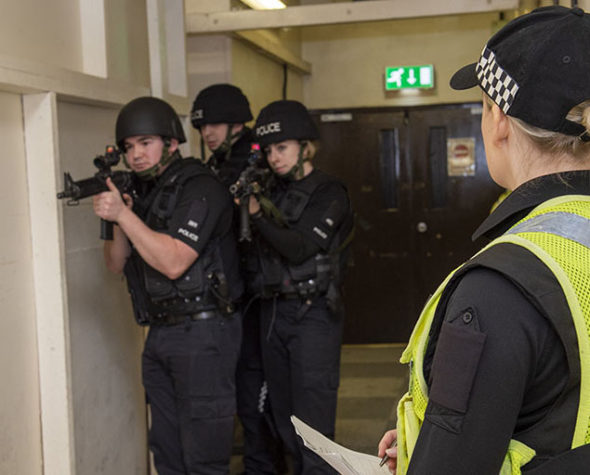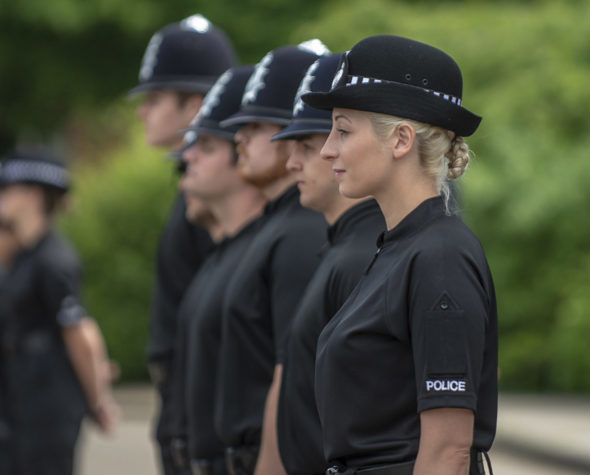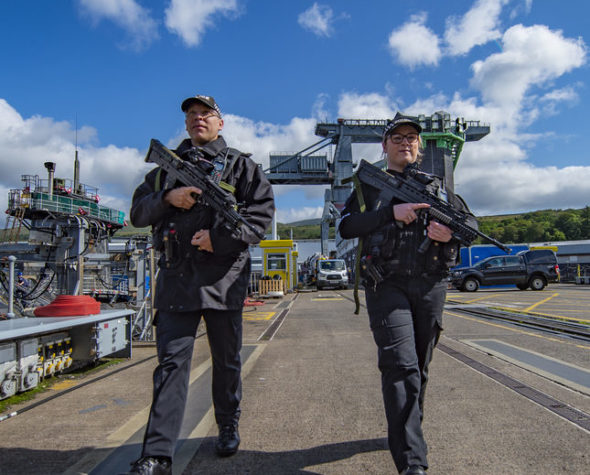Learn what our vetting processes involve
We carry out vital work at sensitive sites and working environments across the UK.
To join the MDP you must successfully complete both Force Vetting and UK Security Vetting (UKSV) processes.
It is important that you are completely open and honest with us during the recruitment process. Omitting or concealing information during either vetting process will be taken as evidence of unreliability and/or dishonesty.
All candidates taking part in Force Vetting and UK Security Vetting are treated impartially and consistently irrespective of age, disability status, gender, gender identity, marital status, race or ethnic origin, religion or belief, or sexual orientation.
The UK Security Vetting process can seem a little daunting and for some people this may cause anxiety, but candidates should be reassured that people from a diverse range of backgrounds and experiences hold clearance at the highest level.
General guidance on myths and misconceptions about the Security Vetting process is available on GOV.UK. However, when reading this guidance, you should be mindful that your application to be an MDP Authorised Firearms Officer means that you will need to meet the required medical, fitness and Police Vetting standards, as well as the requirements for Security Vetting which can be specific to the location at which you will be employed if successful.
The Vetting Charter provides further information on what you can expect during the process and when you hold UK security vetting clearance.
UK Security Vetting (UKSV)
All new entrants must obtain Security Check (SC) Clearance as a minimum. This is the lower security clearance required by the Government and involves a credit check and checks against such things as UK criminal and security records and, if appropriate, those of overseas countries.
Postings to sites such as the Atomic Weapons Establishment (AWE) will require new entrants to obtain an enhanced level of vetting, which is referred to as Developed Vetting (DV) clearance. DV checks are carried out only to the extent required to safeguard national security, but will include:
- the completion of security questionnaires
- financial checks, including a check with a Credit Reference Agency
- interviews with your character referees either by telephone or in person
- a detailed interview with the person requiring the clearance, conducted by a Vetting Officer
The aim of UKSV is to ensure that your character, personal circumstances and integrity are such that you can be trusted with access to sensitive information or assets and that you will not be vulnerable to blackmail.
If you are not initially stationed at a site where DV clearance is required, you will still need to obtain DV clearance if at some point in your career you are posted to a site with a higher-level security clearance status.
Force Vetting
In order to complete the recruitment process, you must successfully complete Force Vetting. This is carried out in accordance with the College of Policing Vetting Code of Practice and the Authorised Professional Practice.
Force Vetting provides an additional layer of reassurance specifically tailored to the police environment. It includes open source Internet enquiries and checks of national police systems. You should ensure that if you have any current or unused social media accounts (e.g. Facebook, Twitter etc.) that all content complies with the Police Code of Ethics.
Some applicants are not granted vetting because they do not disclose relatively minor matters or police enquiries, which may have resulted in no further action or an informal warning. You must disclose all relevant matters regardless of the outcome. A failure to disclose or advise the Recruitment Team of a change in personal circumstances, such as a new address, may result in vetting not being granted.
You may be required to attend a vetting interview with the Force Vetting Manager if considered necessary. However, this is not a common occurrence. If you are refused police vetting, you may appeal against the decision.
Common Access Card
As an MDP officer you may at some point in your career work at a United States Visiting Forces (USVF) Base, most of which are located in the East of England (mainly East Anglia).
Since November 2006, access to US networked IT systems worldwide has only been available via the use of a Common Access Card (CAC) and the majority of posts at USVF Bases require officers to hold a CAC. In order to obtain a CAC, you will need to provide certain personal information and data that the USVF authorities will safeguard and retain whilst you remain employed on a USVF unit.
Police Service Conduct and Performance issues
This guidance applies to all New Entrants from Other Forces (NEOF) and New Recruit applicants who have previous service in any UK Police Force as a Police Staff member, PCSO, Police Officer or member of the Special Constabulary.
It is not possible to be completely definitive on how issues concerning conduct, complaints and Unsatisfactory Performance Procedures (UPP) may prevent or suspend your application to join the MDP. However, the following provides basic guidelines for applicants prior to Police Vetting. The circumstances of all applicants are considered on their individual merits.
Applications will not be progressed if the applicant has received a:
- Final Written Warning (FWW) administered within the last 5 years
- Written Warning (WW) administered within the last 3 years
- Extension to a FWW, administered at any time
- Formal UPP Case at any time within the past 3 years
- Misconduct Sanction categorised as ‘Honesty and Integrity’ in the past 5 years
Applications will be suspended at any stage if the applicant is (or becomes) subject to:
- a Conduct or Complaint investigation for which a ‘Notice of Investigation’ has been served (as this indicates that the allegation is likely to result in Misconduct Proceedings)
- formal UPP
Applicants are advised that they have a continuing obligation to disclose ALL existing and new Conduct and Complaint matters, including misconduct proceedings and Formal UPP. This includes Management Action taken in relation to ‘Honesty and Integrity’.
Applications from individuals who are not currently serving in a police force will not be progressed if they have:
- been dismissed from a UK Police Force as a result of Gross Misconduct Proceedings and remain on the Barred and Advisory List
- resigned or retired from a UK Police Force whilst subject to a Conduct/Complaint case, either prior to the conclusion of Gross Misconduct Proceedings (after Determination of a ‘Case to Answer’ is made) or whilst under investigation for a case assessed as Gross Misconduct
- had their employment terminated whilst serving as a probationary officer
- been dismissed from a UK Police Force as a result of UPP
FAQ: What will happen if my first posting is to a site where enhanced security clearance is required, and I fail to obtain this level of clearance?
You would be offered an alternative posting at a site appropriate to the clearance level that you achieved prior to appointment. There would be no entitlement to relocation expenses. You are therefore advised that you should not commit financially to a move of home, until it is confirmed that you have the required standard of clearance for your designated posting.



